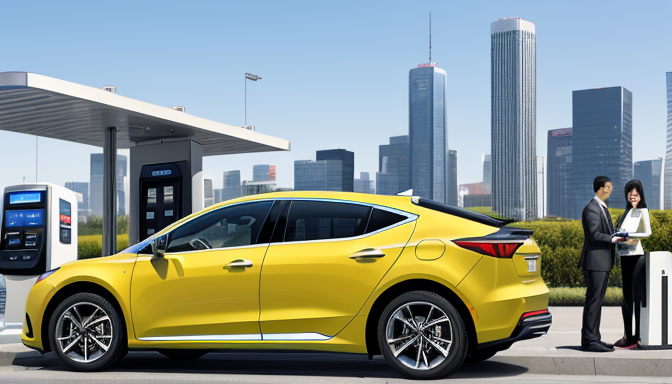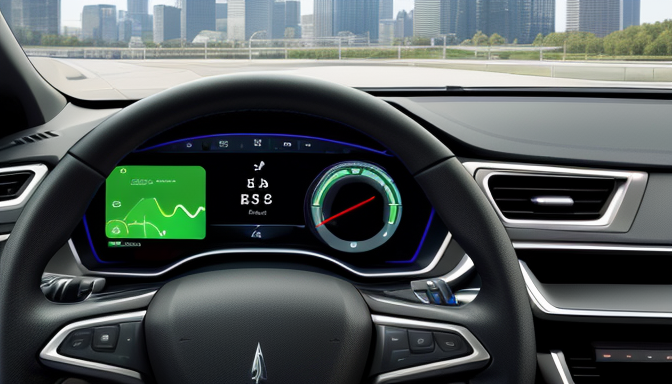In today’s fast-paced world, fuel efficiency has become more than just a buzzword; it’s a critical necessity. With rising fuel prices and the looming threat of climate change, the need for sustainable energy solutions is more pressing than ever. Imagine filling up your tank and seeing your wallet get lighter with each passing mile; nobody wants that! By prioritizing fuel efficiency, we can not only save money but also protect our planet. It’s like hitting two birds with one stone. Are you ready to embrace a future where every drop of fuel counts?
Moreover, technological advancements are paving the way for innovative solutions that make fuel-efficient vehicles more accessible and affordable. From electric cars to hybrid engines, the options are expanding rapidly. As consumers, we have the power to demand better fuel economy, pushing manufacturers to innovate and improve. So, let’s join hands in making fuel efficiency a top priority; because a smarter choice today means a brighter future tomorrow!
Environmental Impact
Fuel efficiency plays a vital role in reducing greenhouse gas emissions and combating climate change. When vehicles consume less fuel, they emit fewer harmful pollutants into the atmosphere, which is crucial for our planet’s health. Imagine a world where cleaner air and reduced smog are the norms; this is what improved fuel efficiency can help achieve.
Every drop of fuel saved contributes to a sustainable future. By embracing fuel-efficient technologies, we can significantly lower our carbon footprint. For instance, vehicles that achieve higher miles per gallon (MPG) not only save drivers money but also lead to a substantial decrease in overall emissions. Let’s break it down:
| Fuel Efficiency (MPG) | Annual CO2 Emissions (lbs) |
|---|---|
| 20 | 11,000 |
| 30 | 7,300 |
| 40 | 5,500 |
As we can see from the table, higher fuel efficiency directly correlates with lower carbon emissions. This isn’t just about saving a few bucks at the pump; it’s about creating a healthier environment for future generations. So, next time you consider your vehicle’s fuel economy, think about the bigger picture. Are you ready to make a change?

Economic Benefits
Improving fuel efficiency is not just an environmental concern; it’s a financial game changer! Imagine saving money at the pump while also reducing your carbon footprint. With rising fuel prices, every drop counts, and better fuel economy translates to significant cost savings for both consumers and businesses. When you drive a vehicle that consumes less fuel, you’re not only keeping more cash in your pocket but also contributing to a more stable economy.
For households, this means more budget flexibility. Think about it: the money saved on fuel can be redirected towards education, healthcare, or even that vacation you’ve been dreaming of! For businesses, lower fuel costs can enhance profit margins and improve competitiveness. Companies that invest in fuel-efficient technologies often see a return on their investment through reduced operational costs.
Furthermore, the economic ripple effect of improved fuel efficiency is profound. It can lead to job creation in the green technology sector, stimulate innovation, and promote sustainable practices across industries. As we embrace these advancements, we’re not just saving money; we’re investing in a more prosperous future for everyone.
Technological Innovations
In today’s fast-paced world, are revolutionizing the way we think about fuel efficiency. Imagine a car that not only gets you from point A to B but does so while using less fuel and producing fewer emissions. Sounds like a dream, right? Well, it’s becoming a reality!
From hybrid engines to electric vehicles, the advancements in automotive technology are staggering. For instance, many manufacturers are now incorporating lightweight materials in their designs, which drastically reduces the overall weight of vehicles, leading to improved fuel economy. Additionally, the rise of alternative fuels such as biofuels and hydrogen is paving the way for a cleaner future.
Furthermore, smart technologies like adaptive cruise control and fuel management systems are enhancing efficiency by optimizing driving patterns. These innovations not only benefit the environment but also save drivers money at the pump. As we embrace these changes, the road ahead looks brighter and more sustainable.

Government Regulations
In today’s rapidly changing world, are stepping up to the plate, aiming to enhance fuel efficiency across various sectors. Why is this so crucial? Well, with climate change knocking at our door, these regulations are not just red tape; they represent a commitment to sustainability. For instance, many countries are implementing stricter emissions standards that compel manufacturers to innovate and improve their fuel economy.
These regulations often come in the form of fuel economy standards, which dictate how far vehicles must travel on a gallon of fuel. This push towards efficiency not only helps the environment but also benefits consumers by reducing fuel costs. But it doesn’t stop there! Governments are also incentivizing research and development in alternative fuels and electric vehicles, paving the way for a greener future.
Here are some key aspects of government regulations that are making waves:
- Tax Incentives: Many governments offer tax breaks for consumers who purchase energy-efficient vehicles.
- Fuel Economy Standards: Stricter guidelines are being set for manufacturers to meet.
- Emission Regulations: Policies aimed at reducing harmful emissions from vehicles.
In essence, these regulations are not just rules; they are the backbone of a movement towards a more sustainable and economically sound future. As we navigate these changes, it’s clear that the role of government in promoting fuel efficiency is more important than ever.
Future Trends
As we gaze into the crystal ball of transportation, fuel efficiency is on the brink of a revolution. With the rise of electric vehicles (EVs) and smart technologies, we’re not just witnessing a shift; we’re experiencing a complete transformation. Imagine a world where your car not only drives itself but also optimizes its energy use in real-time. Sounds futuristic, right? Well, it’s happening now!
Moreover, the integration of renewable energy sources like solar and wind into vehicle design is paving the way for a greener tomorrow. This shift isn’t just about saving the planet; it’s also about enhancing our daily lives. For instance, smart grids are enabling vehicles to draw energy when it’s most efficient, reducing costs and emissions simultaneously.
To illustrate the impact of these trends, consider the following table that highlights key advancements:
| Trend | Description |
|---|---|
| Electric Vehicles | Transition from fossil fuels to electric power, significantly reducing emissions. |
| Smart Technologies | Integration of AI and IoT for real-time energy optimization. |
| Alternative Fuels | Use of biofuels and hydrogen as cleaner energy options. |
In conclusion, the future of fuel efficiency is not just about better mileage; it’s about a holistic approach to sustainability. As these trends unfold, we can expect not just a change in how we drive, but a complete reimagining of our relationship with energy. Are you ready to embrace this exciting journey?
Frequently Asked Questions
- Why is fuel efficiency important for the environment?Fuel efficiency helps reduce greenhouse gas emissions, which are a major contributor to climate change. By using less fuel, we can lower our carbon footprint and protect our planet for future generations.
- How does better fuel efficiency save money?Improving fuel efficiency means you spend less on gas or diesel. This can lead to significant savings over time, making it easier to manage personal finances and contribute to economic stability.
- What technological innovations are enhancing fuel efficiency?Recent advancements include electric vehicles, hybrid technologies, and improved aerodynamics in car design. These innovations are making vehicles more efficient, reducing overall fuel consumption.
- How do government regulations impact fuel efficiency?Governments worldwide are implementing stricter fuel economy standards to encourage manufacturers to produce more efficient vehicles. These regulations play a crucial role in promoting sustainable practices across the industry.
- What are the future trends in fuel efficiency?The future of fuel efficiency looks bright with trends like the rise of electric vehicles and smart technologies that optimize energy use. These developments promise to redefine how we think about transportation and energy consumption.

